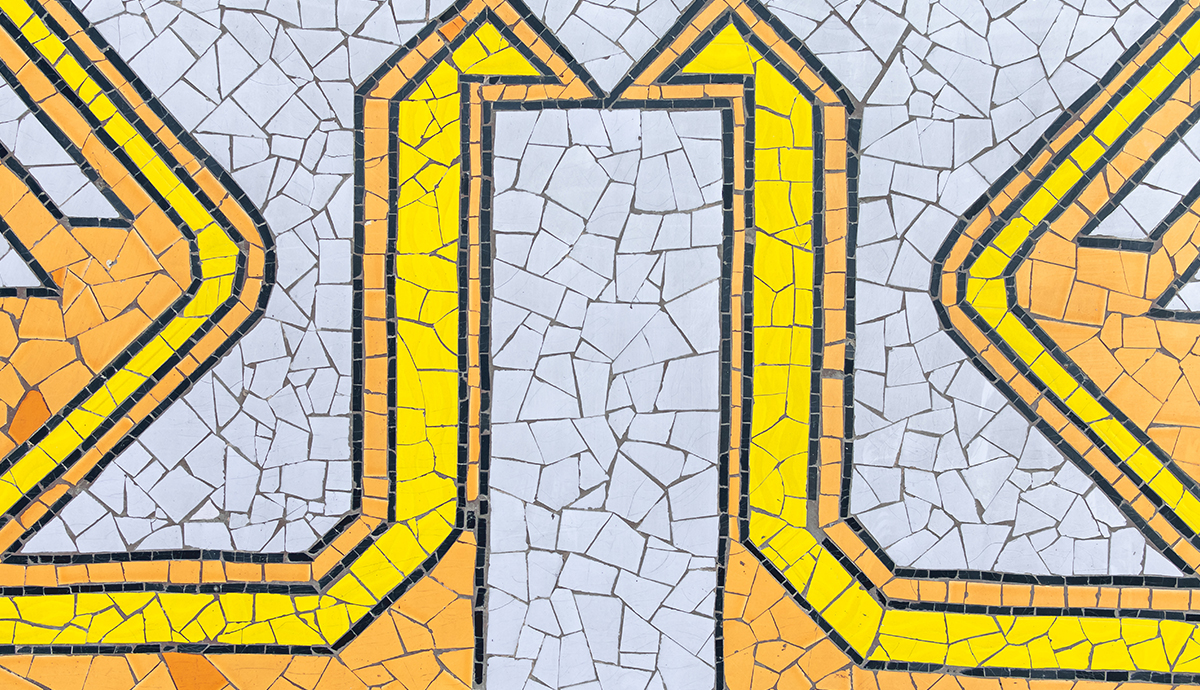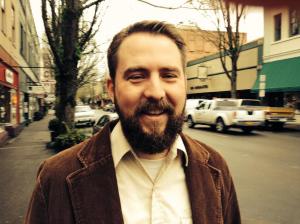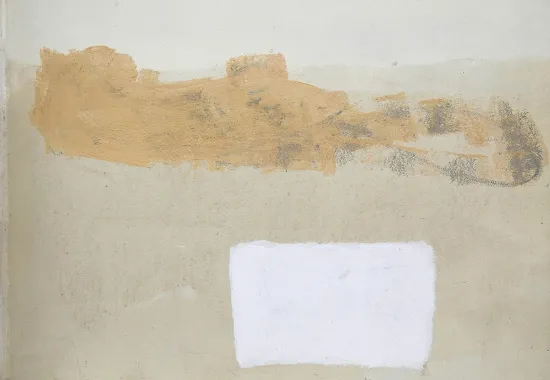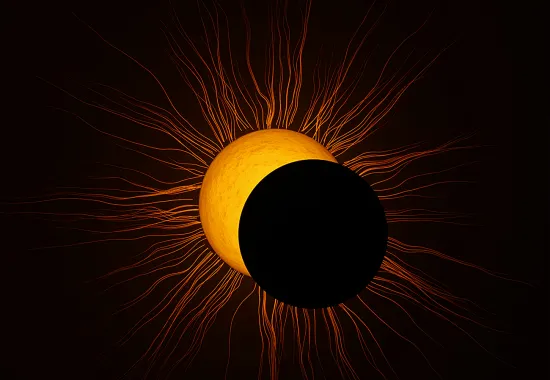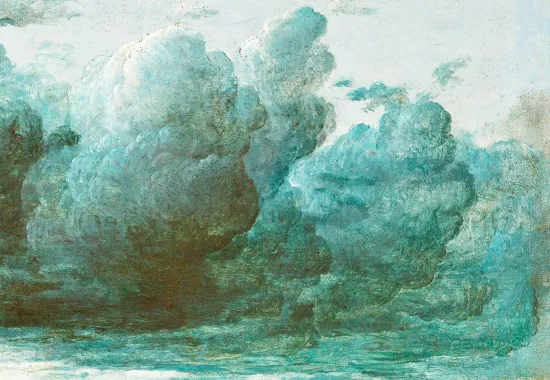On Living and Writing "Complaint with Parking Lot Vegetable Stand & Child's Cry"

Just out of graduate school, only a few reasonable publications under my belt, I landed a job at a small Lutheran College in the upper Midwest. That neither my wife or I knew that far, flat land of small towns, corn farms, and dying industry didn't matter. What mattered was that we were off on a new adventure, that we were starting this new, gainfully employed part of our lives.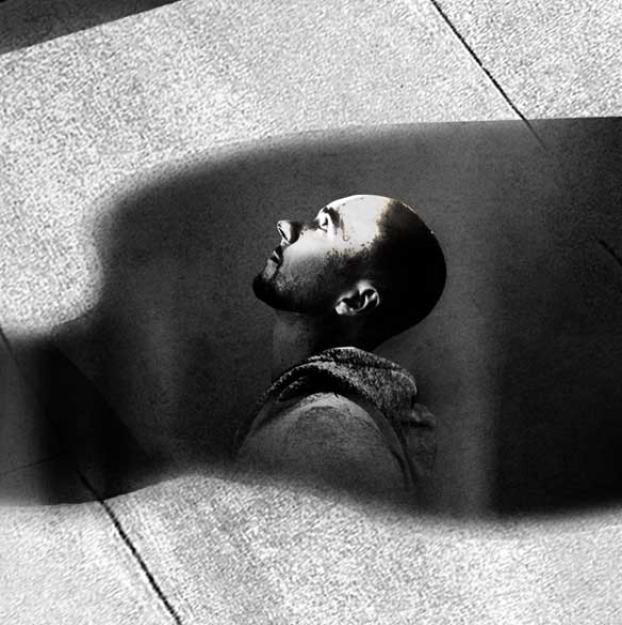
I remember, quite clearly, driving the U-haul over the last hill into town, the brown scribble of the Winnebago River below and the bell tower of the Lutheran church in the center of town crowning the next hill, its stone gone golden in the late summer sun.
Of course, this was 2007, and boys and girls from little towns all over the Midwest were being shipped off to two different wars. This was 2007, not long before the Midwest and the nation would stumble into recession, fall to its hands and bruised knees. The little town we called home was never exactly lively, but month by month the few remaining stores in the brick falsefronts uptown closed their doors, turned out the lights. The college was struggling as well—so many students leaving after a semester or two—and was, after a few worrisome months in which everyone was pretty sure the place would close after spring semester, eventually bought (I didn't even know such a thing was possible) by a family who ran a for-profit, online college.
And then, in 2009, our son, Walter, was born.
We were thinking that we were young and strong and had enough money in the bank, we were thinking we loved one another fiercely and fully, we were thinking how our love might shape, rather than be shaped by, the big, wide world. Still, in hindsight, it seems piss-poor timing. And I don't quite know how we did it, beyond the fact that you do what you have to do. And so—rather than worry about wars and bank failures and what all else—we turned inward. We turned away. The drama of our own household—Did Walter nap today? Did you weed the garden?—more than enough.
Walter must have been just two, toddling around and talking up a storm, when he and I drove over to what city boosters called a farmers market but was really just three or four crusty old guys selling vegetables out of pickup beds in the Pamida parking lot. I'd been up to Pamida recently (Pamida being what passes for a box store in towns too small for Wal-Mart) for something or other, and so was struck by the long, black ribbons of new tar in the parking lot, how the oily tar refracted and rainbowed the light. Just a few days before, all manner of weeds and grasses, and I'd even seen a spindly stalk of corn, were growing up from cracks in the parking lot—and though that was lovely in its way, this was lovely, too: this collage, this modernist paining in tar and late Iowa light:
& so because sunlight
because leaf litter floodwater hot loam
& other frankly sexual things
because each day a break-of-day rain
weds this ripe earth & every mean seed upon it
because all summer then
from any old blacktop crack or bar ditch thin unwanted stalks rise
& rise cleanly
like country boys fated to war or manufactory or worse
the absence of either
so this evening streaks of fresh tar rainbow
the faded strip mall parking lot
scatter the tatty light
I know that's where the poem began, with those streaks of tar, with how they surprised me, with how they seemed so beautiful, with how they felt as well so unfair, that little corn stalk I'd noticed the week before surely killed. Even as I picked through the vegetables, I was writing in my head. And then, of course, there was the cry: loud, lung-ragged, breaking for breath at the end—a child.
I had just sat Walter down and was sure something awful had happened, though all I had to do was turn around to find him—just a few steps away from me, both his little arms stretched around a pumpkin. I was so relieved, and then so ashamed that I was relieved (because, I mean, someone's kid was wailing), and I picked him up and held him, and we drove home, and I still couldn't shake it—that relief, that shame.
As I sat down to draft the next morning, I let those feelings guide me. And, slowly, over days and weeks, the poem itself helped me understand the notion that had been building in me ever since I'd come to Iowa, ever since I'd become a father: that the war- and recession-haunted America we have now is deeply disillusioning, deeply unjust; that you must with a pure, sure ferocity embrace while you can those you love, while never forgetting there are so many others you will never hold, so many others just as deserving:
it is a shame & I am ashamed
at the way my blood falls like warm rain back to me & I simply
squat down & heft the fruit that will feed our flesh
& no other & wish the light like this & the rain
& the broken earth abundant
& all of us like my son & me unworthy & rising
Illustrations by; Anthony Tremmaglia. Anthony Tremmaglia is an Ottawa-based illustrator, artist, and educator. His clients include WIRED, Scientific American, Smart Money, HOW, and San Francisco Weekly.
Recommended
Mercy
Eclipsing
Psychic Numbing


